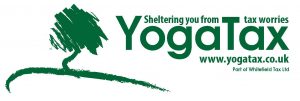The deadline for filing 2020-21 Self Assessments with HMRC is 31 January 2022, which is also the payment deadline.
Lets look at some key things you should be doing now:
Filing Returns
First, if you have an accountant – be it ourselves or someone else – check whether your returns are complete, and if not check you have given your accountant all the information they need?
If you are preparing your own Self Assessment then we produced a guide to this process a few years ago – some of the screens will have changed a little, but the principles hold true:
Guide to Filing Your Own Self Assessment Return
If you are filing your own return and haven’t started yet, then make sure you have the HMRC logins and passwords you need, as it takes time to get replacements. We then advise getting your return done as soon as possible, to avoid last minute rushes, mistakes and surprises.
Before filing your return its worth checking for common mistakes – these are the main issues we see as a firm of accountants:
- A reminder – the return covers the period 6th April 2020 to 5th April 2021 – many people get confused over the dates!
- If you have low income from Self Employment, the only exemption from filing is if your turnover is less than £1,000.
Trading Allowance – £1,000 Exception for Small Self Employments - Is your income complete – nothing missed and no double counting?
- Have you checked your expenses against a checklist – make sure everything is being claimed, and you are not claiming for any non allowable items?
What Expenses Can Be Claimed Against Tax?On the subject of expenses – if your expenses are less than £1,000 you can round them up to £1,000
Trading Allowance – £1,000 Exception for Small Self Employments - Double check your travelling costs – including car costs and public transport. The rules changed a few years ago and still catch people out.
Travel Expenses – own car or public transport – Whats eligible for deduction against tax? - For 2020-21 an added complexity is correctly reporting Covid grants received. The process is not straight forward, but must be observed.
Business Tax – Reporting Covid Support – a Reminder
HMRC Guidance on Amending Self Assessment Returns for SEISS Errors - If you are both Employed and Self Employed, then all of your income goes on your Self Assessment, even if already taxed at source.
Tax and NI when you are both Self Employed and Employed - if you’ve made a loss, make sure you specify how it is to be treated.
Business Losses and Offsetting Them
Paying Your Taxes
As well as 31 January being the filing deadline, it is the payment deadline for both your 2020-21 balance and for your first 2021-22 Payment on Account.
Self Assessment Payments on Account cause a lot of angst. They are an automated process, normally as follows:
- They are calculated at 50% of last year’s tax bill, where it was over £1,000 (unless you paid 80% of your tax at source, eg PAYE).
- The first Payment on Account is due with the balance for the previous year, the second in July.
- If you think your income next tax year will be less you can apply to reduce the Payment on Account, but you don’t need to change it if you think your income will increase.
So, at 31 January 2022, you pay:
- Your balance of taxes for 2020-21 less any Payments on Account based on 2019-20.
- Your 1st 2021-22 Payment on Account at 50% of your 2020-21 actual tax bill.
Then at 31 July 2022, you pay:
3. A second 2021-22 Payment on Account, same amount. These two amounts, 2 and 3, are offset at 31 January 2023 against your 2021-22 total.
So, that’s the theory. In practice, this January is complicated:
- Covid has caused profits to drop for many businesses.
- Paradoxically some businesses have done better under Covid where grants have been more than lost profits.
- Many people postponed their Payments on Account or entered into Time to Pay Arrangements with HMRC.
Bottom line is many people will find their 2020-21 balance and 2021-22 Payments on Account have fluctuated wildly so get your taxes done ASAP to avoid surprises at the end of the month, and check the detail.
National Insurance
Self Employed NI, Classes 2 and 4, is paid with Self Assessment.
If you are paying a Voluntary Class 2 contribution due to low income, then you must pay your taxes by 31 January 2022 – one day late, and you lose the option to pay Voluntary Class 2. Voluntary Class 2 is an inexpensive way to keep your NI record maintained for State Pension and Benefits if you have low income.
Voluntary NI and Self Assessment


